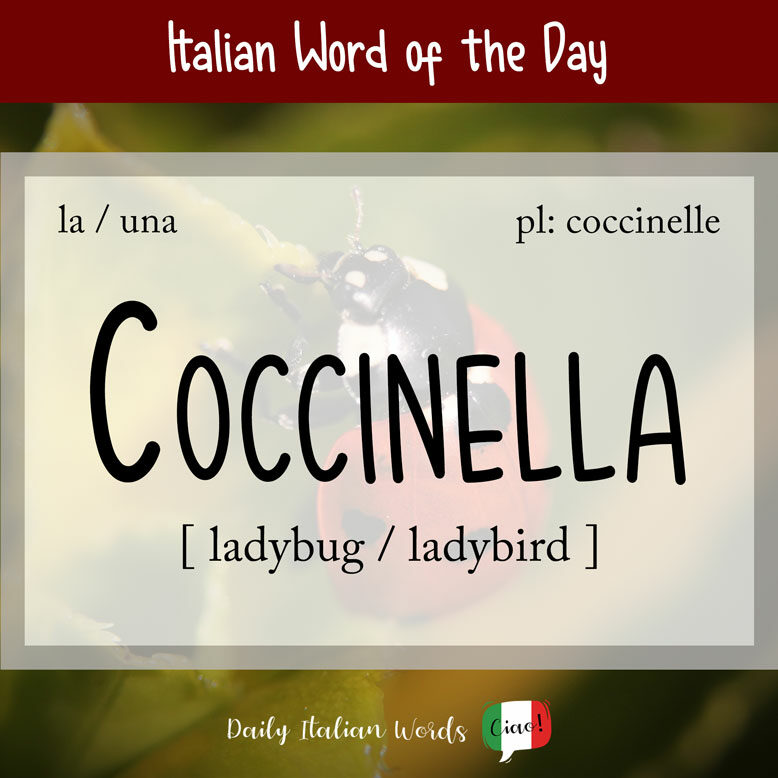Coccinella is the word for ladybug (US) or ladybird (UK) in Italian. It derives from the Latin coccinus, which in turn comes from the Greek kókkinos, meaning ‘scarlet red colour’.

It is a feminine noun whose plural form is coccinelle. The definite and indefinite articles it takes are as follows:
la coccinella
the ladybug
una coccinella
a ladybug
le coccinelle
the ladybugs
delle coccinelle
(some) ladybugs
Le coccinelle sono piccoli insetti colorati a forma di cupola.
Ladybugs are small colourful dome-shaped insects.

Did you know that…?
In Florence, the coccinella is called Lucia, most likely because it is popularly associated with the Sicilian saint of the same name. It is believed that if you hold this insect and allow it to fly away, your sight will be protected. On the contrary, if you harm or, worse still, kill the ladybug, you will suffer from sight issues.
Le Coccinelle is the section in the Scouts organisation for girls and boys aged eight to eleven years old. In some associations, ladybugs are just girls. The coccinella was chosen by Father Agostino Ruggi d’Aragona, the then central assistant of the Associazione Guide Italiane (Italian Guide Association), as in many countries the ladybug is a symbol of luck and in some legends, linked to the Madonna.
There is also a masculine version, coccinello, but it has nothing to do with bugs. It is a type of peg to connect two cables.
Ethics statement: Below you will find an affiliate link. If you buy something after clicking the link, we will receive a small commission. To know more about our ethics, you can visit our full disclosure page. Thank you!

Are you interested in improving your Italian in a fun and stress-free manner? Then we highly recommend Serena Capilli’s short stories in Italian (affiliate link), designed for beginners, advanced beginners, and lower intermediate learners (A1-B1 CEFR). These stories have been optimised for English speakers in search of a fun, laid-back learning experience! Read our full review here.
Heather Broster is a graduate with honours in linguistics from the University of Western Ontario. She is an aspiring polyglot, proficient in English and Italian, as well as Japanese, Welsh, and French to varying degrees of fluency. Originally from Toronto, Heather has resided in various countries, notably Italy for a period of six years. Her primary focus lies in the fields of language acquisition, education, and bilingual instruction.

